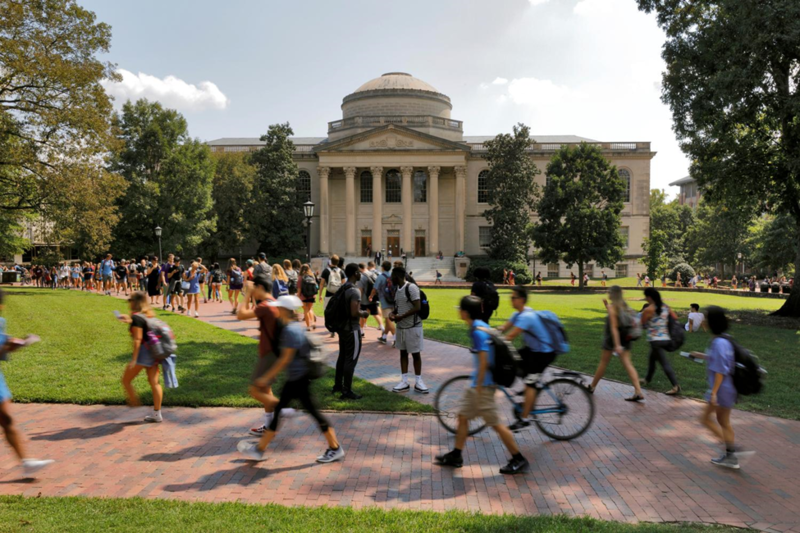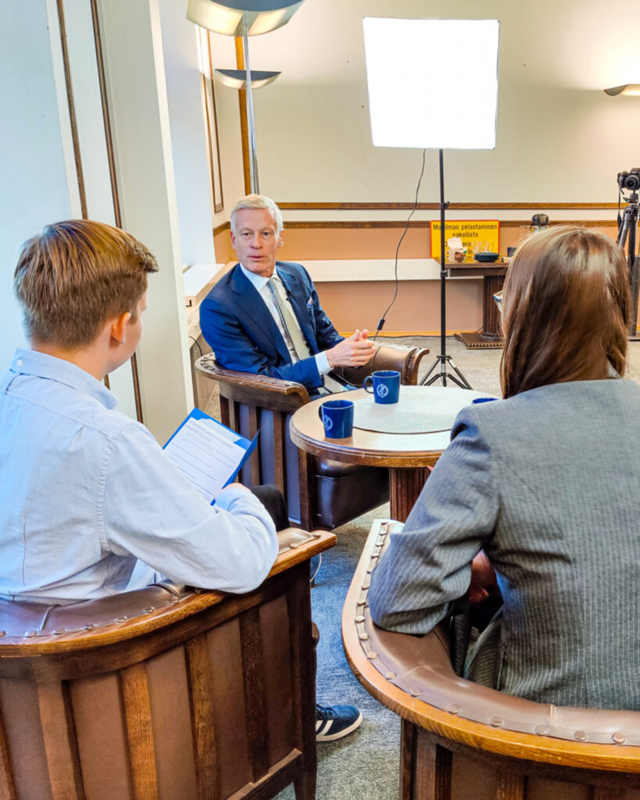The Silent Struggle: How Political and Financial Pressures Are Undermining Academic Freedom
Input
Modified
Political and ideological interference in academia The Chilling Effect on Research and Financial Constraints Global Academic Protections and Emerging Threats

Political and ideological interference in academia
Academic freedom is under siege as political influence, financial instability, and emerging threats increasingly shape the global research landscape. From government-imposed censorship to funding freezes and ideological crackdowns, scholars worldwide face mounting pressures that threaten the pursuit of knowledge, making the defense of intellectual autonomy more critical than ever.
A fundamental pillar of democratic societies is academic freedom, which is the ability of academicians to teach, research, and communicate ideas without undue influence. Nevertheless, political interference, financial instability, and other emerging threats are progressively undermining this freedom. The necessity of a unified global response to safeguard universities and research institutions from external pressures that jeopardize the integrity of scholarship is underscored by recent developments, which highlight these growing concerns.
Global attention was recently drawn to the issue of political interference in academia as a result of a controversy in Finland. Kaarle Hämeri, the chancellor of the University of Helsinki, disclosed that the U.S. government exerted pressure on the institution to modify the language employed in its communications regarding Fulbright scholarships. In particular, U.S. officials advocated for the omission of terms such as "climate change" and "equal society" from university publications.
Academic exchanges between American students and institutions abroad are facilitated by the Fulbright Program, a prestigious international scholarship initiative that is financed by the U.S. government. Nevertheless, this recent incident has prompted apprehensions that the funding is subject to ideological constraints, which restrict the ability of universities to engage in critical social and scientific discussions. This is perceived by numerous academicians as a direct assault on institutional autonomy and an attempt to influence global discourse through funding conditions.
This interference was promptly opposed by the Finnish academic community. An open petition was signed by more than 800 academics and university officials, who are advocating for Finnish universities and applied science institutions to deny any external pressures that attempt to regulate research topics or language usage. The Council of Rectors of Finnish Universities (Unifi) and the Rectors' Conference of Finnish Universities of Applied Sciences (Arene) were urged to resist such political encroachments by the petition.
Heikki Holopainen, the Executive Director of Unifi, underscored the importance of scientific freedom as a fundamental component of democratic societies. "Any attempt to restrict research freedom or university autonomy is unacceptable," according to him. In the same vein, Ida Mielityinen, the Executive Director of Arene, characterized the situation as unprecedented and cautioned that permitting such influence could establish a perilous precedent for future academic research and international collaboration.
In addition to Finland, there are other nations where governments have attempted to restrict educational content due to concerns regarding political influence. The free exchange of knowledge on a global scale is being jeopardized by the increasing risk of academic censorship, which ranges from restrictions on international collaborations to prohibitions on specific research topics.

The Chilling Effect on Research and Financial Constraints
Financial instability poses an additional significant threat to academic freedom, particularly in the United States, where government science funding has been subjected to repeated budget cuts and restrictions. The lifeblood of university scholarship is research funding, which enables the advancement of the social sciences, technology, and medical. Nevertheless, researchers may be compelled to modify their work to accommodate the available funding, rather than scientific necessity, when financial resources become uncertain as a result of political disputes.
This results in a chilling effect, where scholars may self-censor or prioritize politically favorable topics in order to secure funding, rather than pursing innovative and occasionally controversial research. As time progresses, these limitations limit the breadth of academic inquiry and undermine the capacity of universities to confront critical societal issues.
The consequences of U.S. funding restrictions are not limited to the country's borders. In the disciplines of public health, climate science, and artificial intelligence, numerous research institutions worldwide depend on American grants to support collaborative projects. International projects are at risk of cancellation or substantial delays when funding uncertainties arise, which has an impact on the global advancement of knowledge and the success of researchers.
Furthermore, early-career researchers who depend on grants and fellowships to establish their work are disproportionately affected by financial instability. Promising young scientists may abandon academia or relocate to countries with more robust research support in the absence of consistent funding sources, thereby contributing to a "brain drain" that undermines global scientific advancement.

Global Academic Protections and Emerging Threats
In addition to financial and political constraints, academic freedom encounters additional obstacles that exacerbate the complexity of the higher education environment.
1.) Legislation and Academic Gag Orders: A number of states in the United States have implemented educational gag orders that prohibit the study of specific concepts, including critical race theory, on the grounds that they are "divisive." In the period of 2021 to 2023, 99 bills were introduced, and 10 of them were ratified, all of which had an impact on higher education. These laws are intended to suppress critical examinations of race and identity and to misrepresent academic discussions.
2.) Activist Governing Boards: Academic freedom is jeopardized when individuals lacking scholastic expertise exert influence over academic and curricular decisions. Frequently, this is the result of governing boards and trustees exceeding their responsibilities, which undermines the principles of shared governance. The politicization of educational content and the erosion of institutional autonomy may result from such interference.
3.) Targeted Harassment and Social Media Campaigns: Academics are becoming more susceptible to organized harassment campaigns, which are frequently exacerbated by social media. A climate of dread and self-censorship is established as a result of the targeting of scholars, particularly women and people of color, for their research or public positions.
4.) Academic Self-Censorship: A global survey revealed that 77% of academics believe that free speech on campus has become more restricted over the past decade, resulting in a rise in self-censorship. Academics have reported that they refrain from discussing specific subjects for fear of receiving negative feedback from students, colleagues, or political actors.
5.) Managerial Pressures and Brand Image: The adoption of corporate ideologies that prioritize brand image by universities can stifle academic freedom and open debate. The managerial approach has been influenced by financial pressures, which has resulted in a prioritization of reputation over intellectual exploration. This approach has been designed to discourage dissenting views and controversial research that may generate negative attention.
The global academic community must adopt a proactive approach to safeguarding academic freedom in light of the dual concerns of political interference and financial insecurity. Policymakers, universities, and research institutions must work together to resist external pressures that attempt to regulate scholarly discourse, curriculum content, or research priorities.
Among educational institutions, one critical approach is to cultivate international solidarity. A more robust defense against political and financial pressures is established when universities in various countries collectively uphold the principles of academic freedom. Academics are demonstrated to be willing to resist political intervention through initiatives such as the open petition in Finland. However, sustained action is required to guarantee the long-term preservation of research integrity.
Furthermore, governments and funding agencies must guarantee consistent and impartial funding for scientific research. Policymakers must acknowledge that knowledge production is a societal advancement investment and should be protected from partisan agendas. The risk of political manipulation can be mitigated by the use of independent funding mechanisms, such as private and philanthropic grants, as alternatives to state-controlled funding.
We cannot exaggerate the significance of international organizations in the defense of academic freedom. Institutions such as UNESCO and global university alliances should advocate for policies that guarantee a fair distribution of funding resources and prevent political interference in research. Researchers who are subject to censorship or funding restrictions in their home countries must also be granted refuge by countries that prioritize academic freedom. In the final analysis, the future of higher education is contingent upon the capacity of academic institutions to operate without political and financial constraints. The global academic community must maintain a vigilant stance in its defense of research freedom, whether through collective action, legal protections, or diversified funding sources. This is the only way to guarantee that universities continue to function as environments for critical thinking, innovation, and the pursuit of knowledge without external interference.





















